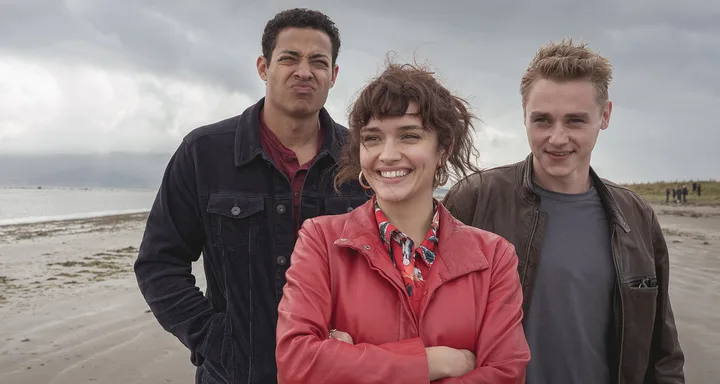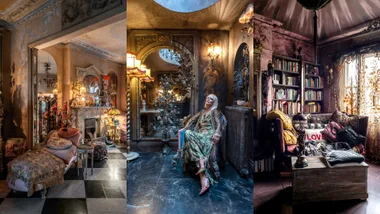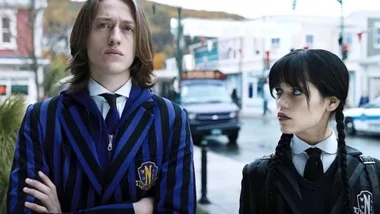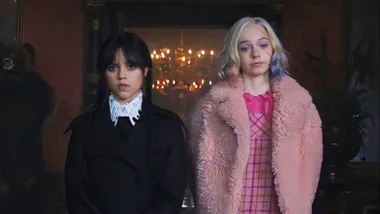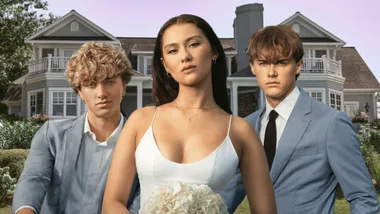After cementing herself as one to watch following breakout roles on Bates Motel and Vanity Fair, Olivia Cooke’s latest project is one of her best yet. Starring in Pixie, the British actress takes on a modern-day femme-fatale in the new edgy, female-driven dark comedy from St Trinian’s director Barnaby Thompson, featuring a series of hilarious—and unfortunate—twists and turns.
For the drug-heist comedy, Cooke stars as the film’s title character, Pixie Hardy, the step-daughter of a small-time gangster in the Irish town of Sligo. With sights set on a new life in San Francisco, she recruits a couple of local lads—Peaky Blinders’ Daryl McCormack and Bohemian Rhapsody’s Ben Hardy—to avenge her mother’s death by robbing a drug-dealing priest, played by Alec Baldwin.
Throughout the film, Pixie is unapologetic in her manipulations of the men she enlists to help, keeping viewers on their toes as they try to guess what her mischievous mind might do next—a trait Cooke admits attracted her to the role.
“I mean, it’s so fun to play that in a very safe environment, without hurting anyone and be able to exercise all the things that you’ve wanted to do to men and being able to do it and be like, ‘It’s pretending. It’s fine’,” the actress tells me over Zoom ahead of the film’s release on January 28. “And be able to exercise that mischievous, naughty side of yourself.”
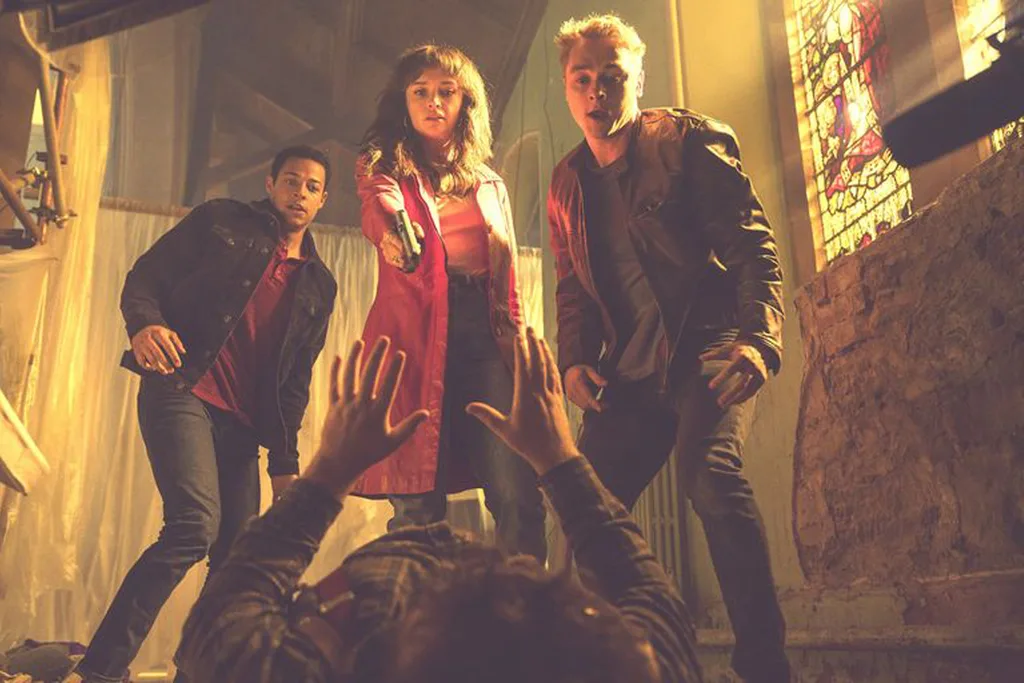
Naming the charismatic character Pixie was no accident, either, with writer Preston Thompson deliberately flipping the ‘Manic Pixie Dream Girl’ trope on its head. The typical female character is often depicted in Hollywood as whimsical and quirky, usually saving a male protagonist from themselves—aiding in his transformation without ever showing any agency of their own.
In this sparky new film, Pixie is her own woman, not afraid to be selfish, assertive and cutthroat to get what she wants.
When asked why such female leads are more important than ever, Cooke surmises: “Because men have been doing it for so long.”
“Men have been playing these dastardly characters who have done these awful things, and yet we’re still supposed to root for them as an audience,” she adds.
“I think playing these female roles, and especially this one where I wasn’t going into it being like, ‘I hope this audience likes me.’ I didn’t really know what the audience would think when it came to how I was playing Pixie, I just wanted to relate with as much truth as possible, especially as I could in that heightened world, and see how it played out.”
Cooke adds that women are “full of imperfections”, and those said imperfections “need to be seen and they don’t need to be conjured up in a way that feels fictitious.”
It’s not just Cooke’s energetic portrayal of Pixie that is sure to hook audiences, but the jaw-dropping setting of Ireland’s countryside that sets the backdrop of the film. And it’s not alone in hooking us in with such spectacular scenery.
Pixie follows suit in the string of projects in recent months that have seen us lust after the idyllic isles of Ireland—namely, Sally Rooney’s Normal People.
Why we’re gravitating to such novels and films? Cooke says it’s “just so beautiful.”
“To see that onscreen is a treat, but sometimes it’s just a bit zeitgeisty,” Cooke says. “Sometimes, you’ll have two Snow Whites that come out or two Jungle Books, and you’re like, ‘Why?’ So I don’t know if that case.”
Pixie is in cinemas from January 28.
